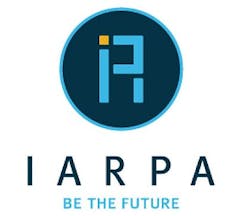IARPA releases solicitation for superconducting research in high-performance computing (HPC)
WASHINGTON, 31 July 2013. U.S. government researchers are asking industry to develop a small computer based on superconducting logic and cryogenic memory that is energy-efficient, scalable, and able to solve interesting problems -- particularly those that involve intelligence gathering and analysis.
Officials of the Intelligence Advanced Research Projects Activity (IARPA) in Washington released a solicitation Monday (IARPA-BAA-13-05) for the Cryogenic Computing Complexity (C3) program, which seeks to establish superconducting computing as a long-term solution to the power, space, and cooling problem of traditional complementary metal-oxide-semiconductor (CMOS) designs in high-performance computing (HPC).
Power and cooling demands of high-performance computers rapidly are becoming unmanageable problems, IARPA officials explain. Superconducting computing offers an attractive low-power alternative to CMOS, such that superconducting computers may be capable of 1 petaflop per second for about 25 kilowatts and 100 petaflops per second for about 200 kilowatts, including the cryogenic refrigerator.
IARPA is the research arm of the U.S. Office of the Director of National Intelligence.
The current broad-agency announcement (BAA) is for phase 1 of the C3 program, which seeks to develop the technologies required to demonstrate the value of superconducting computing. It has two thrusts: cryogenic memory; and logic, communications, and systems.
The cryogenic memory component seeks to create new approaches to enable high-performance computing with significantly improved memory capacity and energy efficiency compared to what is possible today. Logic, communications and systems, meanwhile, seeks to develop key superconducting logic circuits necessary to demonstrate the potential of superconducting logic for high-performance computing.
The first phase of the IARPA C3 program will run from December 2013 to March 2017. Offerors may propose to one or both of these technical thrusts but a separate proposal is required for each thrust. IARPA officials say they plan to award several contracts for the C3 program's initial phase.
IARPA conducted industry briefings for the C3 program last spring, but have waited until now to release the program's formal solicitation.
Companies interested should respond with proposals no later than 13 Sept. 2013. For questions or concerns email the C3 program manager, Marc Manheimer, at [email protected].
More information is online at https://www.fbo.gov/notices/55cefaec5a3dcac236383a90951e7f71.
